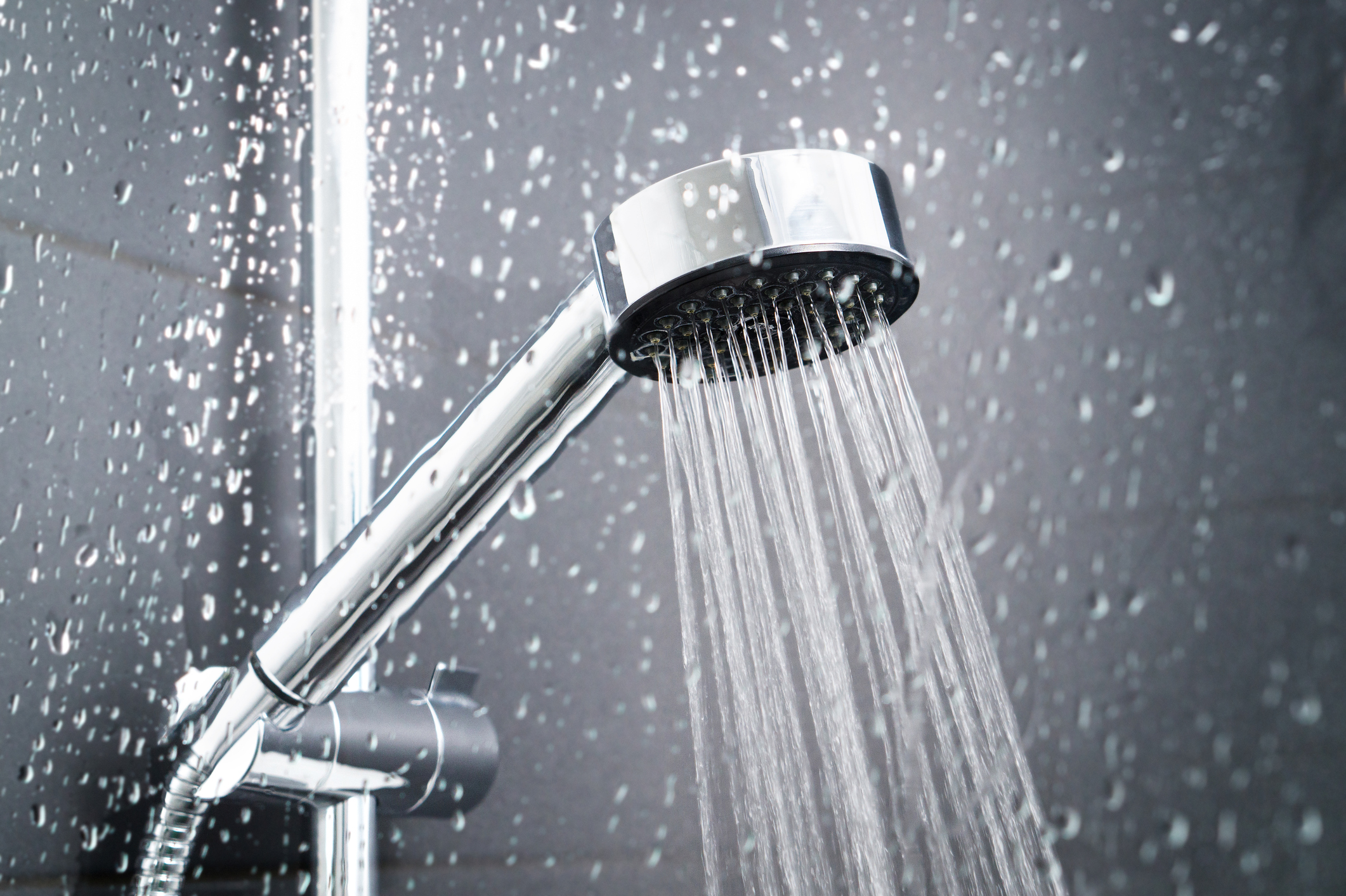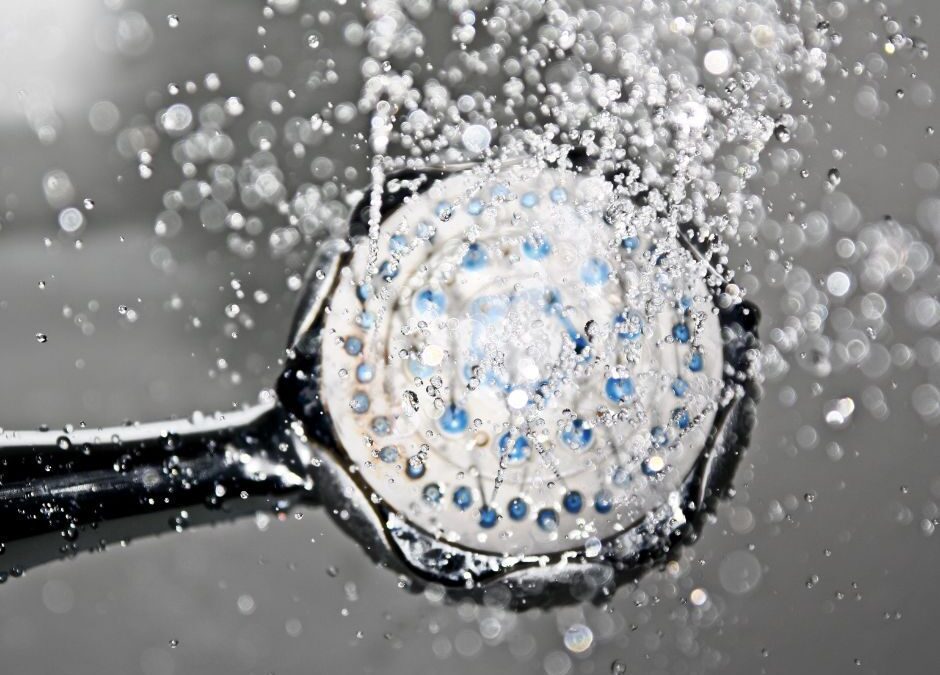Disclosure: This post contains affiliate links and I will be compensated if you make a purchase after clicking through my links. Learn More
Have you ever stepped into your shower, turned on the tap, and been surprised by an unusually strong blast of water? If your shower water pressure is suddenly high, you might be both curious and concerned.
Is it a sign of a bigger plumbing issue, or just a temporary quirk? You’re not alone in wondering about this sudden change. Understanding the reasons behind it can save you from potential problems down the road. Keep reading to uncover the possible causes and solutions, ensuring your shower remains a place of relaxation, not stress.
Let’s dive into why your shower might be acting like a pressure washer and what you can do about it.
Common Causes Of High Water Pressure
Experiencing a sudden increase in shower water pressure can be puzzling. High water pressure might seem beneficial. But it can cause damage to pipes and appliances. Understanding the common causes can help you address the issue promptly. Let’s explore some of these potential causes.
Pressure Regulator Malfunction
Your home’s pressure regulator manages water flow into the house. If it malfunctions, water pressure can rise unexpectedly. Over time, regulators can wear out or become faulty. Check if the regulator is working as it should. A professional can help assess and fix this issue.
Municipal Water Supply Changes
Changes in the municipal water supply can affect home water pressure. Cities might adjust water pressure for various reasons. Sometimes, maintenance or construction can cause these changes. Contact your local water authority for more information. They can confirm if this is the cause.
Piping Alterations In The Home
Recent plumbing changes might also lead to higher water pressure. Alterations can impact how water moves through your home’s pipes. Even small changes can have big effects on pressure. Review any recent plumbing work done in your home. Ensure everything was installed correctly.

Credit: www.gopreferred.com
Effects Of High Water Pressure
Have you ever stepped into the shower, expecting the usual gentle stream, only to be blasted by an unexpectedly strong surge? It’s an experience that can be both surprising and concerning. High water pressure in your shower can seem like a luxury at first, but there are hidden downsides that can affect your home, your wallet, and your shower experience.
Potential Damage To Plumbing
Excessive water pressure can be a silent destroyer of your plumbing system. Pipes, joints, and fixtures are designed to withstand certain pressure levels. When water pressure exceeds these levels, it can lead to leaks and bursts. Imagine discovering a leak in your bathroom wall or ceiling—it’s not just inconvenient, but also expensive to fix. Have you checked your pipes recently?
Increased Water Bills
High water pressure means more water flowing through your showerhead than necessary. This can lead to a significant increase in your water bills. Every drop counts when you’re trying to save money. Keeping an eye on your monthly bill can help you spot sudden changes. Wouldn’t you rather spend that extra cash on something fun?
Impact On Shower Experience
Your shower experience should be relaxing, not overwhelming. High pressure can turn a soothing shower into a harsh and uncomfortable ordeal. It can make it difficult to enjoy your favorite shower products as they wash away too quickly. Have you ever felt like you’re being pelted by water instead of enjoying a gentle rinse?
High water pressure can seem like a minor issue, but its effects are far-reaching. From damaged plumbing to increased bills and a less enjoyable shower experience, it’s worth investigating. Next time you feel that intense blast, ask yourself: is high water pressure really worth it?
Diagnosing The Issue
Experiencing a sudden increase in shower water pressure can be alarming. It might disrupt your daily routine. Understanding the cause is the first step to resolving it. Diagnosing the issue involves inspecting several potential causes. Let’s break it down.
Checking The Pressure Regulator
The pressure regulator is crucial. It controls water pressure in your home. A malfunctioning regulator can cause high pressure. Check if it’s working properly. Look for any visible damage or leaks. Adjust the settings if needed. It may solve the problem.
Inspecting Pipes And Connections
Pipes and connections can affect water pressure. Inspect them for blockages or leaks. Old pipes may have mineral buildup. This can increase pressure. Ensure all connections are secure. Loose fittings might cause pressure fluctuations.
Consulting With Neighbors
Your neighbors might experience similar issues. Ask them if their water pressure is high too. It could be a neighborhood-wide problem. Such problems often result from changes in municipal water supply. Knowing this can help you decide on the next steps.

Credit: www.reddit.com
Solutions And Preventive Measures
Experiencing a sudden increase in shower water pressure can be concerning. Check your water pressure regulator for malfunctions or sediment buildup. Regular maintenance and cleaning can prevent future issues, ensuring consistent water flow and avoiding potential pipe damage.
Experiencing a sudden spike in shower water pressure can be surprising, but understanding the solutions and preventive measures can help you tackle this issue effectively. High water pressure might seem like a luxury, but it can cause damage to your plumbing over time. Let’s dive into some practical steps you can take to address and prevent this problem.
Adjusting Or Replacing The Pressure Regulator
The pressure regulator is your first line of defense against high water pressure. It controls the amount of pressure entering your home. If your shower suddenly feels like a fire hose, checking the pressure regulator might be necessary. You can adjust the pressure regulator using a wrench to turn the adjustment screw. However, if adjusting doesn’t work, you might need a replacement.
A faulty regulator can cause inconsistent pressure, leading to potential plumbing issues. Replacing a regulator isn’t complicated. You can do it yourself with basic tools or hire a professional if you’re unsure. Investing in a new one could save your pipes from unnecessary stress.
Installing A Pressure Reducing Valve
A pressure reducing valve (PRV) is a great way to keep your water pressure in check. If your home lacks one, consider installing it. It automatically controls the pressure, offering peace of mind. PRVs are usually installed where the water line enters your house. They adjust the pressure to a safe level, protecting your plumbing system from damage.
If you’ve noticed fluctuating water pressure, a PRV can be a reliable solution. Installing a PRV might require professional assistance, but it’s worth it for the long-term benefits. It ensures consistent water pressure throughout your home.
Regular Plumbing Maintenance
Regular plumbing maintenance is crucial for preventing unexpected changes in water pressure. Just like you maintain your car to avoid breakdowns, your plumbing system needs attention too. Check for leaks regularly, as they can lead to pressure changes.
A small leak might not seem like a big deal, but it can escalate quickly if ignored. Inspect pipes for signs of wear and tear. A weak pipe can burst under high pressure, causing costly repairs. Keep an eye out for corrosion, rust, or any visible damage. Engage a plumber for routine check-ups.
They can spot potential issues before they become major problems, ensuring your water pressure stays in the safe zone. Do you have a story about a time high water pressure caused havoc in your home? Share it below and let’s learn from each other’s experiences.
When To Call A Professional
Experiencing a sudden increase in shower water pressure can signal underlying issues. It could be a faulty pressure regulator or mineral buildup. Consulting a professional ensures accurate diagnosis and avoids further damage.
Experiencing a sudden spike in your shower water pressure can be perplexing and potentially problematic. While some issues can be resolved with simple DIY fixes, others demand the expertise of a professional. Knowing when to make that call is crucial to prevent further damage. Let’s explore the signs and benefits of professional help, along with the costs involved.
Signs Of Severe Plumbing Issues
A sudden increase in shower water pressure might indicate severe underlying plumbing issues. If you notice unusual noises like banging or whistling when the water is running, it could signal a problem. Leaks or water stains appearing around your home are also red flags. Another sign is if the water pressure is inconsistent or fluctuates drastically. This could point to a malfunctioning pressure regulator or a more serious problem within your plumbing system. Addressing these signs promptly by contacting a professional can save you from costly repairs down the line. Ignoring them might lead to more extensive damage, such as burst pipes.
Professional Assessment Benefits
Hiring a professional plumber comes with multiple benefits. They have the tools and expertise to accurately diagnose the root cause of high water pressure. Their assessment can determine whether it’s an easy fix or requires more complex solutions. Professionals can also offer preventive advice to protect your plumbing system from future issues.
This proactive approach can enhance the lifespan of your plumbing and maintain your home’s safety. Imagine spending days trying to fix a problem yourself, only to realize it’s beyond your skill set. A professional can save you time and frustration by addressing the issue efficiently.
Cost Considerations
Cost is often a concern when deciding to hire a professional. However, consider the potential expenses of not addressing the problem promptly. Delayed repairs can lead to escalated issues and higher costs. When contacting a plumber, it’s wise to request a quote upfront. Some professionals offer free estimates, which can help you plan your budget accordingly.
Think about the long-term savings of hiring a professional to fix the problem correctly the first time. It can be more economical than repeated DIY attempts that might not hold up. Have you ever tried to fix something yourself and ended up spending more than you planned? Sometimes, calling a professional is the smarter financial choice.

Credit: smoakscomfort.com
Frequently Asked Questions
What Causes High Shower Water Pressure?
High pressure can stem from valve issues or debris buildup in pipes. Both can alter water flow unexpectedly.
Is High Water Pressure Dangerous?
It can strain your plumbing. This may lead to leaks or damage over time. Regular checks are wise.
How Can I Fix High Water Pressure?
Adjust your pressure regulator. Clean showerhead and valves. Consult a plumber if issues persist.
Should I Worry About Sudden Pressure Changes?
Sudden changes might signal a plumbing issue. Check for leaks or obstructions. Address quickly to prevent damage.
Final Words
High water pressure in your shower can be a surprise. It might be a valve issue or sediment blocking pipes. Another cause could be a change in water supply. Check for leaks or adjust your regulator if needed. Call a plumber if you can’t find the problem.
Regular maintenance prevents future surprises. Keep your shower routine safe and comfortable. Understanding these issues helps you act quickly. Stay alert and ensure your plumbing runs smoothly. Your home’s comfort depends on it. Remember, a steady shower keeps mornings stress-free.
Always aim for balanced water pressure.


